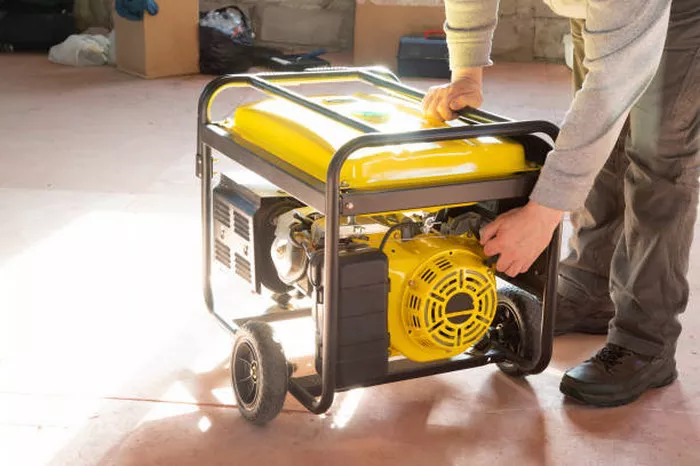A home generator is an essential investment for ensuring uninterrupted power during outages, emergencies, or off-grid living. With various types, sizes, and features available, selecting the best generator for your needs can be overwhelming. This guide explores different types of home generators, their working principles, key selection criteria, and recommendations for the best models available today.
Types of Home Generators
1. Standby Generators
Description: Standby generators are permanently installed units that automatically provide power during an outage. They run on natural gas, propane, or diesel and are wired directly to the home’s electrical system.
Working Principle: These generators use an automatic transfer switch (ATS) that detects a power outage and starts the generator within seconds. Once power is restored, the ATS switches back to the grid and shuts off the generator.
Best for: Homes requiring continuous backup power, businesses, and medical equipment users.
Pros:
- Automatic operation
- High power output
- Fuel-efficient (natural gas or propane options)
- Long lifespan
Cons:
- High upfront cost
- Requires professional installation and maintenance
2. Portable Generators
Description: Portable generators are mobile units that supply temporary power. They run on gasoline, propane, or diesel and require manual operation.
Working Principle: These generators use an internal combustion engine to produce electricity. Users must manually start them, plug in appliances, or connect them to a home transfer switch.
Best for: Short-term power outages, camping, and remote job sites.
Pros:
- Affordable and readily available
- No installation required
- Portable for different applications
Cons:
- Requires manual startup and fuel refilling
- Limited power output
- Can be noisy
3. Inverter Generators
Description: Inverter generators provide cleaner and more stable electricity, making them ideal for sensitive electronics.
Working Principle: They generate AC power, convert it to DC, and then invert it back to AC with precise voltage control, reducing fluctuations.
Best for: RVs, camping, and homes with sensitive electronics.
Pros:
- Fuel-efficient and quieter than traditional generators
- Produces stable power for electronics
- Compact and lightweight
Cons:
- More expensive than conventional portable generators
- Lower power output
4. Solar Generators
Description: Solar generators use solar panels to charge batteries, providing an eco-friendly and silent power source.
Working Principle: They store energy from solar panels in batteries, then use an inverter to convert DC power to AC for household use.
Best for: Off-grid living, emergency backup, and environmentally conscious users.
Pros:
- Silent and emission-free
- Low operating costs
- Renewable energy source
Cons:
- Limited power output
- Dependent on sunlight
- High initial cost
How to Choose the Best Home Generator
1. Determine Your Power Requirements
Calculate the total wattage of essential appliances and systems in your home. Common appliances and their approximate power requirements include:
- Refrigerator: 600W
- Sump pump: 1,000W
- Air conditioner: 3,500W
- Lights: 100W per room
- Television: 200W
- Laptop: 50W
2. Fuel Type
- Gasoline: Widely available but has a short shelf life and requires regular refueling.
- Propane: Cleaner-burning and can be stored indefinitely.
- Natural Gas: Ideal for standby generators connected to a gas line.
- Diesel: More fuel-efficient but noisier.
- Solar: Sustainable but weather-dependent.
3. Runtime and Efficiency
Look for models with longer runtime on a single tank of fuel. Standby generators run continuously as long as fuel is available, while portable models need refueling.
4. Noise Levels
If noise is a concern, inverter and solar generators are the quietest options, while traditional portable and standby generators are louder.
5. Portability vs. Permanence
Decide whether you need a stationary standby generator or a portable unit for multiple uses.
6. Additional Features
- Electric Start: Easier to use than pull-start mechanisms.
- Automatic Transfer Switch: Required for seamless standby generator operation.
- Weather Resistance: Important for outdoor placement.
- CO Sensors: Some newer models shut off automatically if carbon monoxide levels rise.
Top Home Generator Recommendations
Best Standby Generator: Generac Guardian 22kW
- Power Output: 22,000W
- Fuel Type: Natural gas or propane
- Features: Automatic operation, Wi-Fi monitoring, quiet operation
- Best for: Whole-house backup
Best Portable Generator: Honda EU7000iS
- Power Output: 7,000W
- Fuel Type: Gasoline
- Features: Inverter technology, fuel efficiency, quiet operation
- Best for: Medium power needs, RVs, and emergency backup
Best Inverter Generator: Champion 4500-Watt Dual Fuel Inverter
- Power Output: 4,500W
- Fuel Type: Gasoline or propane
- Features: Dual fuel capability, quiet operation, electric start
- Best for: Camping, tailgating, and sensitive electronics
Best Solar Generator: Jackery Explorer 2000 Pro
- Power Output: 2,000W
- Fuel Type: Solar
- Features: Fast solar charging, lightweight design, zero emissions
- Best for: Eco-conscious users and off-grid applications
Conclusion
Selecting the best home generator depends on your power needs, budget, and intended use. Standby generators are the best for uninterrupted whole-house power, while portable and inverter generators offer flexible backup solutions. Solar generators are ideal for those seeking a green alternative. By considering factors such as power output, fuel type, and additional features, you can choose the perfect generator for your home.

